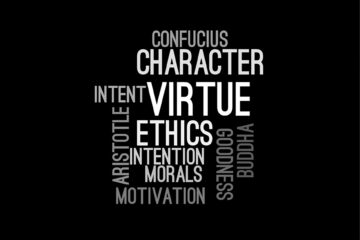![]()
INTRODUCTION
Legal research is that the process of identifying and retrieving information necessary to support legal decision-making. The word ‘plagiarism’ comes from the Latin word ‘plagiare’ which suggests “to kidnap”. The boundary between plagiarism and research is usually unclear. Learning to acknowledge the varied sorts of plagiarism, especially the more ambiguous ones, is a crucial step towards effective prevention. Many people consider plagiarism as copying another’s work or borrowing someone else’s original ideas.

IMPORTANCE OF LEGAL RESEARCH FOR LAWYERS
Legal research is significant for law firms, lawyers, and legal corporations because it supports them in handling the complicated legal cases and helps in forming strong arguments for his or her case It helps to be familiar with the primary aspects of a case. It increases the world of practice Provides complete information a few disputes Helps to demonstrate the matter on the simplest possible grounds. You can draw out the underlying principle of law. It keeps you updated with legislative history
Legal research assistance is often extremely beneficial for lawyers who are battling demanding clients and heavy caseloads. It helps in many ways:
Legal research may be a time-consuming process and conducting it on your own may hamper other priority tasks. In that case, outsourcing legal research is a perfect option because it frees up some time, enabling you to remain focused on core legal aspects. Like others, even lawyers need to meet specific deadlines to take care of overall efficiency in their firm. Thus, outsourcing legal research service providers assist you to try to so. Their professional team streamlines your research process so that you’ll prepare yourself for the trial in time. Outsourcing legal research services help law firms to eliminate the need for an in- house legal team, infrastructure, and technology, which ultimately save on time.
MEANING OF PLAGIARISM
According to the Oxford Dictionary, Plagiarism can be defined as taking someone else’s work and pretending it to be your work. It is quite simply copying someone else’s work. When students submit work purporting to be their own, but which in any way borrows ideas, organization, wording, or anything from another source without appropriate acknowledgment of the fact, the students are guilty of plagiarism. It even includes copying from unpublished works. Plagiarism is typically discovered by scholars and researchers during the continuance of their research work.
DO PLAGIARISM AMOUNT TO FRAUD?
The copying of another’s ideas without giving credit to the particular owner of the thought is claimed to be plagiarism. Plagiarism in the normal sense considered as unethical issue but not a criminal offense.
As someone else’s work or ideas are misrepresented as one’s work, so it amounts to “Fraud”.
When the act has been done dishonestly it shows the ingredients of “Cheating”.
When a considerable portion of the copyrighted work is copied without permission and knowledge then it amounts to criminal proceedings. It will amount to both the infringement of copyright and therefore the violation of the “special right” of the author to be credited.
CONCLUSION
There are often several ways and resources to stop plagiarism, but there’s got to be an all-time alert and feel it to be one’s moral responsibility to avoid committing such acts. What may be also required is a sure shot formula of preventing such practices that not only harm the author’s reputation but also affect the first author’s work’s credibility and value. One of the points to be considered, however, is that plagiarism can, unlike the other crime, hardly cause any real or physical harm.
REFERENCES
- http://www.lexisnexis.com/documents/LawSchoolTutorials/20120619103358_large.pdf
- http://www.legalserviceindia.com/article/l222-Plagiarism.html
- https://blog.ipleaders.in/plagiarism-law-india/
- https://www.slideshare.net/cogneesolbpo/significance-of-legal-research-for-lawyers



0 Comments